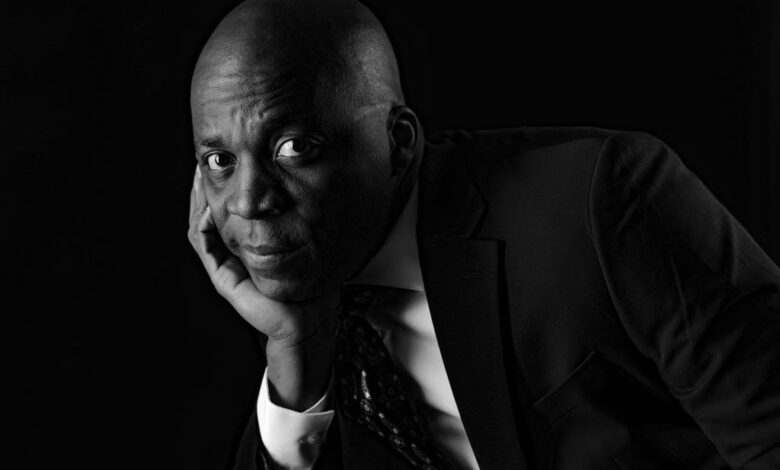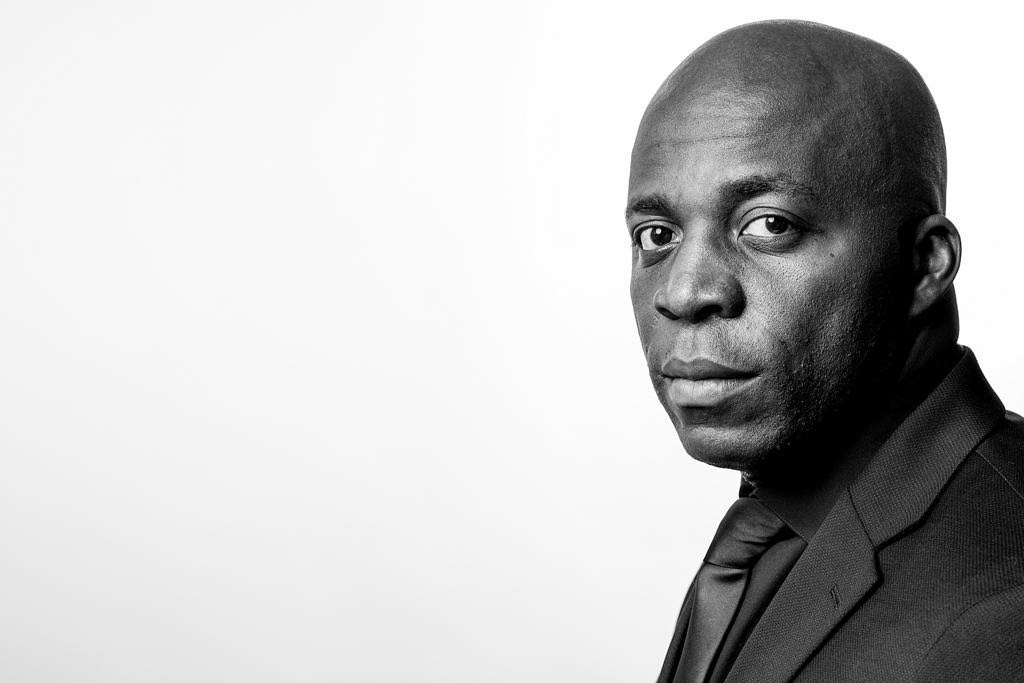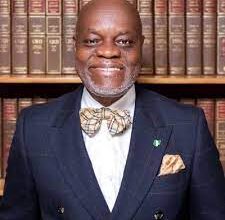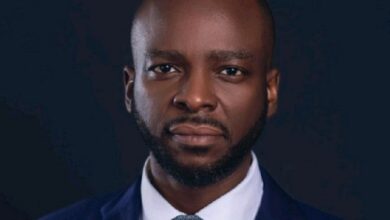Office Lives: Adebayo Adeleke, Founder, Supply Chain Africa

Adebayo Adeleke is the founder of Supply Chain Africa. He has four master’s degrees in subjects related to supply chain management and leadership. He is a seasoned combat veteran of the United States Army with 20 years of service. After leaving the US military, Adebayo has built a career advising multinational and multilateral organisations on procurement, logistics, and other aspects of supply chain management. He has deep knowledge and expertise in Emerging markets, Risk Management and Security, and Geopolitics.
The supply chain is the lifeline of every military. It is also the lifeline of businesses. If you cannot supply the demand, you cannot get paid for it”.
What did you study at the University?
I studied Management for my first degree. I have four master’s degrees. The first one is in Supply Chain Management from the University of San Diego and the second is in Procurement and Acquisition Management from Webster University, St. Louis, Missouri. My third master’s degree is in Public Administration with an emphasis on Leadership from Central Michigan University. I studied for the final one in Military Science at US Army Command and General Staff College. I am working on a Ph.D. at the University of Southampton in the UK. I am yet to complete it but a lot of people refer to me as “Doctor”.
I spent 20 years with the US Military before I retired.
What did you dream of becoming as a child?
For some reason, I was not one of those kids who dreamt of becoming a doctor, lawyer, or policeman. I did not join the bandwagon of dreaming about a future profession. But I was very focused on doing very well at the WAEC and JAMB examinations. The Nigerian educational system back then didn’t offer much in terms of guidance counseling. People figured out on their own the paths. Many just followed the crowd, going to the Sciences, Arts or Commercial class without giving much thought to what they are really gifted at. I studied Microbiology for a while at Babcock University. I actually enjoyed it. However, I traveled to the United States of America; joining the military in the USA made me truly discover myself. That kickstarted my career and the journey to the person that I am today.
How did you get into supply chain management?
My journey into supply chain management started in the military. My journey to the US military began in a somewhat odd manner. Normally, when you join the US military, you take an aptitude test. This test is important because it influences where you are sent, and the kind of opportunities and career you will have. My recruiter did not really inform me about the test, he just said very casually, “don’t worry, it’s only a small test to see if you can read or write.”
I wasn’t prepared for the test. I just went to make an inquiry and they asked me to write the test. Often, the recruiters just want to recruit as many people as possible and achieve their targets. After the test, they looked at my score and said “you know what, you should be a methodological specialist”. At that time, I had no idea what that meant.


I started at the bottom of the pipeline in supply chain management and as time went on, I began to understand my career in the military. I started asking myself questions like “what am I doing?”, and “what is this thing called logistics or supply chain?”. I started to see what I was doing was integral to the larger scheme of things, to American foreign policy and military strategy.
I began to align my role with broader strategic policy goals. I began to dig deeper and got interested in so many things that logistics and supply chain management are connected to or make possible. I fell in love with the field. In short, I can say joining the military gave birth to my passion for supply chain management.
How does Supply Chain Management contribute to a nation’s military strength?
Military operations are driven by the supply chains that support them. You can’t go into operations without supply chain support. The supply chain is the lifeline of every military. It is also the lifeline of businesses. If you cannot supply the demand, you cannot get paid for it. Defeat or victory in most military campaigns in the world is determined by the supply chain. Military historians and strategists will tell you this applies to the 19th-century wars in Yoruba land, the Ogun-Kiriji, Jalumi, the fall of the Oyo empire, and the 16 protracted wars that Ibadan fought.
Tactics is of course important, however, you cannot sustain an operation without a supply chain. The failure or success of most business ventures also lies in the supply chain. As a supply chain specialist, I can feel I am right at the centre of the whole operation, in the eye of the storm. I enjoyed the feeling when I was handling supply chain for the military. Now I enjoy using my skills to supply complex transnational business operations.
Please, tell us more about your career in the American military
In the military, there is a system of hierarchy. There are the enlisted, warrant, and officer levels. I joined as an enlisted man. You cannot become a warrant without being enlisted but you can become an officer without being enlisted. I was enlisted and at the bottom of the barrel. I was a private. The US Army is quite professional in that it allows soldiers to go to school and work alongside.
Also Read: Office Lives: Abiola Adekoya, CEO and Founder of Artios Capital
I rose to the rank of Staff Sergeant and was about to become a Sergeant First Class which is an E7 rank. I started from E1 and got to the E7 rank. As an enlisted marine, the highest you can attain is the E9 rank. I was just two ranks shy of Sergeant Major when I crossed over to become a Lieutenant. I went to the Officer Candidate School to qualify as a Lieutenant. I became Second Lieutenant, First Lieutenant, and Captain before I retired.
I had earlier determined that whatever rank I got to, I would exit the army at the 20-year mark because I have other things to do. The military is not the end for me, it was just a means to an end. But the military was a great stepping stone. I went to the military in place of a regular university and I discovered myself. During my time in the military, I discovered that there are other things I would like to do besides being in the military. Could I have stayed longer in the military? Absolutely but considering the passion I have for what I do now, I don’t think I would have the energy if I waited and retired at an older age. I retired in 2018.
Is there any lesson from the American military for the Nigerian military?
There is always a lesson to be learned. And it’s not only from the American military. We can also from other militaries that have fought extremism, and have fought terrorism both at home and abroad. My insights on fighting terrorism are drawn from my experiences on the battlefield across the globe. I have also drawn from the experiences of those who have fought terrorism in the past. We look to the past when we craft different operations and when develop different counter-operations and battle plans. We study terrorist activities that have happened back in history. There is always a pattern in the tactics and operations of violent extremists whether they are active now, or 20 or 200 years ago. There is always a pattern. To defeat terrorism, you have to connect the dots and understand what is at the heart of a terrorist or an extremist military operation.
I think Nigeria has a lot to gain from many countries that have fought militarised extremism either within or outside their borders. The terrain might be different but there are a lot of similarities in the situations. There is a lot to learn when you study the similarities or even the differences. How to handicap and defeat the supply chain of a terrorist force is one of the most critical things you can learn. Most importantly, most of the wars against terrorism are not going to be won by killing militant terrorists. This is because terrorism is deep-rooted. The beliefs that fuel terrorism cannot be defeated by bullets.
It takes conversation, it takes dialogue to degrade the beliefs or those ideologies. What the war or fighting does is subdue their military power in such a manner that you can have constructive dialogue with them. You can’t have conversations with terrorists when they are in a position of strength. Mostly they have to be defeated or in a position of weakness for conversations to be effective.
You can’t have conversations when everybody is so amped up on adrenaline and fighting. You need to first beat them down. But the ideology behind extremism, terrorism, banditry, and the like are deeply rooted in the human mind and bullets can not uproot it. A nation has to garner intellect to dissect the problem, break it into granular bits, and then develop a plan to engage the extremist culture and mind and destroy the ideology that animates it. Then you start to win hearts and minds. This is done through negotiation and constructive dialogues. Positive acts like steps to improve governance and deliver social or physical infrastructure projects are also important. By improving people’s experience of government, they change minds and undercut terrorist ideologies.
What was your biggest challenge while working in supply chain management in the US Military?
Supply Chain is a massive part of operations even outside the military. The frustrating part of working in supply chain is that nothing works according to plan. So your constant default is being creative, and innovative because nothing works according to plan. That’s why supply chain management is quite difficult. You have people, especially in my position, who were deployed to different countries, having to work with different cultures, and different systems to get the job done.
You cannot let whatever you are going through deter you from your end state. Your end state will always rule. People will abuse you, and spit on you figuratively but your end state will not change. Your end state is to support the warfighters, so you have to be creative without breaking any laws. You have to be ingenuous to get some stuff done. It can be challenging, having to work through different people, having to work with people who don’t understand your system.


You have to learn so much about other people’s jobs, you have to become an expert in so many fields. I was working in an artillery unit, then I worked in a light infantry unit, a completely different thing. The same thing is obtainable when you manage supply chain in the commercial world. You work today in the film industry, there’s a supply chain that supports the film industry that you have to master. There’s a supply chain that supports agricultural products and there’s a supply chain that supports FMCG operations. You have to understand the supply chain of any company or industry you are supporting. Yes, the same concepts apply but they mean quite different things in different industries, so you have to understand the nature of each ecosystem. It can be challenging that you have to dump what you know here and start to learn about something else, but that is what makes supply chain management so interesting.
Can you please tell us more about how supply chain management in the military is different from what obtains in the private sector?
One key difference is that one is effective, and the other one is efficient. The military and the government for the most part have very effective supply chains. What drives them, their end state is very different. They don’t have the dollar sign. In the FMCG world, they have a dollar sign, you work for the money. The supply chain must support the bottom line. In the military, the bottom line is to save lives or support the soldiers fighting wars. So, I can spend so much money to achieve my objectives. How do you quantify the monetary value of defeating terrorists or saving the lives of officers or protecting civilian populations either at home or abroad?
But there are financial constraints when you are working with FMCGs. The costs have tight financial metrics. Essentially, it’s all about effectiveness versus efficiency. In the military, you need to meet your end state and often, by any means possible. Whereas in the FMCG world, the commercial world, cost is a constraint; the end state is not worth it if it costs too much considering the bottom line. In summary, one is effective and the other one is efficient.
What would you describe as your proudest moment?
To be honest with you, I am not one to look back and say I did this, I did that because I am a very collaborative person. I can’t wholeheartedly take glory for anything I have done because anything I have accomplished has come through team effort. So it would be disingenuous for me to say this is one great thing that I have done. My training in the US military would make that difficult as it was very big on teamwork.
However, we have done some great stuff. We have developed different processes, and been able to create different avenues, different opportunities, and different legacies through Supply Chain Africa. But I cannot in good conscience tell you that I have done everything by myself because there is always a great team that supports me.
Everything I have done is down to the team’s effort. And again establishing the new initiative we are doing across Africa, trying to professionalize supply chains across Africa, starting a supply chain magazine and retelling African supply chain stories from many regions of the continent, none of this is possible without a great team. We are also researching indigenous supply chains and unearthing supply chain lessons that Africa can share with the world. I can’t do any of this without a great team and a solid network of experts across the continent.
What is the importance of supply chain management to the African Continental Free Trade Area (AfCFTA)?
I have said it on many platforms, supply chain management is what is needed to make AfCTA happen. This is not really a free trade agreement; this is a guided trade initiative because if it is a free trade agreement, anyone will just bring anything in. It is a guided trade initiative, non-tariff measures, and the like. Supply chain management is at the center point of everything. Trade is just theory unless the supply chain is involved. It is what moves commodities from Point A to Point B.
Also Read: Office Lives: Ier Jonathan-Ichaver, Co-Founder, Sesor Empowerment Foundation
You can’t move from Point A to Point B without logistics, transportation, warehousing, and all these things you need for trade to be executed. So, at the center point of AfCFTA is the supply chain. I believe it should be the first thing that needs to be aligned. Africa has 54 sovereign states and all of them have their unique and peculiar characteristics. Oftentimes, those things may not align with each other. Cultural norms impact the ways people make or trade things. People in a country might accept a product as meeting required standards but it might not qualify as a standard product in another country. Supply chain processes are critical to creating alignments so that trade can be expanded. Without optimising supply chains, AfCFTA will not be firing on all cylinders.


There are several insights we have in our report. One of them is the important role of security. We also identified the need for infrastructure across Africa and in different corridors, air, land, sea, etc. We identified how private and government stakeholders can have productive collaborations to improve security and infrastructure. There has to be strategic interactions between national, regional, private, and public actors and civil societies for these things to happen. We also emphasised the importance of knowledge sharing among nations in West Africa, Central Africa, and East Africa to ensure that things are moving along in the different corridors. To boost trade it is important to enhance cooperation in combating terrorism along the routes used in transporting goods.
On a typical office day, what’s the first thing you do when you get to the office?
The office is different these days, the office is everywhere you are. I have an office but the office is mobile for me. Wherever I consider my office, the first thing I do is the regular morning routine- prayers, me time, and coordinating all my energy to get me firing on all cylinders. Then I check all my emails, prioritize my tasks for the day. Some are recurring tasks, some are priority tasks, then I attack them by order of importance.
For me, the office is everywhere. Even though I have a physical office, I don’t get there enough but everywhere I am, I am my own walk-in office.
What’s your favorite part of your job?
It is meeting people with great ideas, looking at what they’re doing, and sharing ideas. You would be amazed by what people are doing globally. I enjoy meeting people from different walks of life who are doing great things, impacting their world, and building great legacies. It is a very rewarding experience to be able to have conversations with people and network. That is the greatest part of my job.
What’s the next big thing you’re looking forward to?
There are a few initiatives we are working on with Supply Chain Africa. We trying to harness about 100 million supply chain professionals across the continent into one platform so we can deepen the level of professionalism. For Africa to trade more with itself, we need a workforce of supply chain professionals that are in tune, and progressive, and we will do that on that platform. We will continually mentor people and build on and share indigenous systems of supply chain management. We will take it a day at a time.
Sure supply chain management is great but when do you plan to call it a day?
I don’t think you ever retire from something you love. Till the day my creator calls me home, I think I will continue to do what I do. Whenever my clock is up and I have to stop and leave, somebody else is going to pick up the baton and continue where I stopped. The whole thing is not about me, it’s about the journey, and I am just a part of the journey. Somebody else is going to pick up the baton after me, and I believe they are going to carry the baton brighter and shinier than me. My part is to ensure that I finish strong and the next person to come after me will do a better job than what I did for the most part.
What I do in the leadership space and the supply chain space, there’s really no way you can step back. Even if you step back, you are still mentoring. So I don’t foresee myself scaling back at any point in time. My involvement with time will reduce but the moment you take it away from me, you may just tell me “it’s time to go.”







